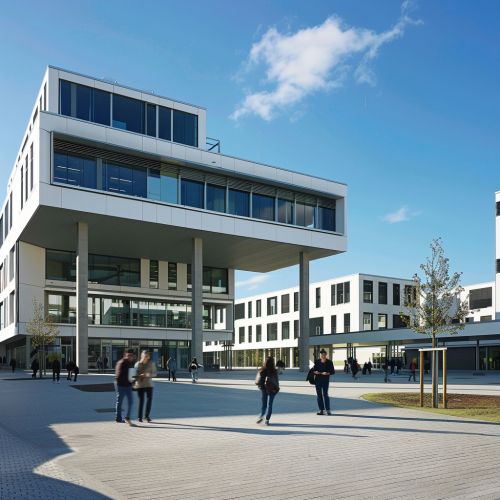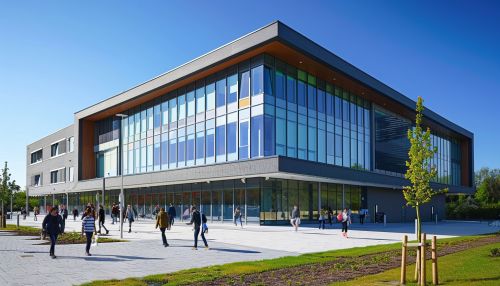Technical University
Overview
A Technical University is a type of educational institution that specializes in the teaching of applied sciences, engineering, and technology. These universities are characterized by a strong emphasis on research and practical training, often in collaboration with industry and business.
History
The concept of a technical university dates back to the Industrial Revolution in the 18th century, when the need for skilled workers in various technical fields led to the establishment of specialized schools for the training of engineers and technicians. The first technical universities were founded in Europe, notably the Ecole Polytechnique in France and the Technical University of Berlin in Germany. These institutions set the model for technical education, combining rigorous academic study with practical training in laboratories and workshops.
Structure and Organization
Technical universities are typically organized into faculties or schools, each focused on a specific area of technology or engineering. These may include faculties of mechanical engineering, electrical engineering, computer science, civil engineering, aerospace engineering, and many others. Each faculty is headed by a dean and includes several departments or institutes, each led by a professor. The structure and organization of a technical university are designed to facilitate interdisciplinary collaboration and to promote a focus on applied research and innovation.


Curriculum
The curriculum at a technical university is typically focused on the application of scientific principles to the design, development, and operation of technological systems. Students are required to take a core set of courses in mathematics, physics, and chemistry, as well as specialized courses in their chosen field of study. The curriculum also includes laboratory work, project-based learning, internships, and a final year project or thesis. The aim is to equip students with the knowledge and skills needed to solve complex technical problems and to innovate in their chosen fields.
Research and Innovation
Research is a key component of a technical university's mission. These institutions are often at the forefront of technological innovation, conducting research in areas such as renewable energy, artificial intelligence, nanotechnology, and biomedical engineering. Many technical universities have research partnerships with industry and government, and their research often leads to the development of new technologies and the creation of start-up companies.
Admission and Graduation
Admission to a technical university is typically competitive, with applicants required to have a strong background in mathematics and science. Some universities also require applicants to pass an entrance examination or to submit a portfolio of their work. Upon successful completion of their studies, graduates are awarded a Bachelor of Science (BSc), Master of Science (MSc), or Doctor of Philosophy (PhD) degree, depending on the level of their studies.
Impact and Significance
Technical universities play a crucial role in the technological and economic development of a country. They produce highly skilled graduates who contribute to the advancement of technology and innovation. They also conduct cutting-edge research that leads to new discoveries and inventions. In addition, these universities often have strong links with industry, providing valuable training and employment opportunities for their students.
